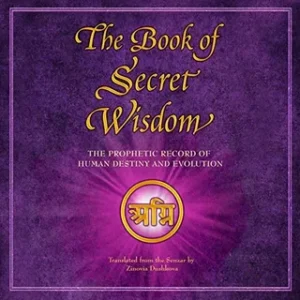How the Bible Guides Personal Wisdom and Spiritual Growth
The Bible: A Source of Timeless Wisdom
The Bible is not only one of the most widely read books in the world but also one of the most influential in shaping ethical values, moral decisions, and spiritual growth. Its teachings have been a cornerstone of religious practice and philosophical thought for over two millennia, guiding individuals and societies in matters of faith, morality, and personal conduct.
Though its stories and teachings come from ancient times, the wisdom within the Bible remains profoundly relevant in today’s world, offering timeless lessons for anyone seeking deeper meaning, spiritual insight, or guidance in their everyday lives.
The Ethical and Moral Guidance Found in the Bible
At its core, the Bible is a moral and ethical guide, offering principles that help individuals navigate complex decisions and relationships. From the Ten Commandments to the teachings of Jesus in the New Testament, the Bible sets forth standards for right and wrong, justice, and mercy.
1. The Ten Commandments: A Foundation for Ethical Living
One of the most well-known and foundational aspects of the Bible is the Ten Commandments, a set of moral imperatives that are still widely respected today. These commandments cover the basic principles of human morality, such as honoring one’s parents, respecting others’ property, and avoiding actions like murder, theft, and lying.
The Ten Commandments continue to influence modern society, providing a simple yet profound framework for ethical living. They are not just religious guidelines; they are also deeply relevant in today’s world, where questions of justice, fairness, and personal responsibility remain at the forefront of ethical debates.
2. The Teachings of Jesus: Compassion, Forgiveness, and Selflessness
In the New Testament, the teachings of Jesus Christ emphasize values such as compassion, forgiveness, and selflessness. Jesus’ Sermon on the Mount, for instance, is a powerful collection of teachings that encourage people to love their neighbors, forgive their enemies, and live with humility and kindness.
These messages of love and forgiveness are foundational to the Christian faith, and they continue to resonate with people of all faiths and backgrounds. In a world often divided by conflict and division, the Bible’s emphasis on compassion and empathy offers essential guidance for building peaceful, just societies and fostering personal spiritual growth.
Spiritual Growth and the Pursuit of Wisdom
Beyond offering moral guidance, the Bible also provides a path for spiritual growth. Through its stories, parables, and teachings, individuals are encouraged to deepen their relationship with God, seek wisdom, and live a life of purpose.
3. Proverbs and Wisdom Literature: The Pursuit of Knowledge and Understanding
The Book of Proverbs, a part of the Old Testament, is one of the most well-known examples of wisdom literature in the Bible. This book is filled with short, profound sayings that impart practical wisdom for living a righteous life. It covers themes such as the value of humility, the importance of wisdom, and the benefits of hard work and integrity.
In Proverbs, individuals are encouraged to seek knowledge and understanding, to treasure wisdom as one would treasure gold, and to live in a way that honors God. The Book of Proverbs teaches that wisdom is a divine gift and that it should be sought and applied in every aspect of life.
4. The Psalms: A Source of Comfort and Reflection
Another central component of the Bible is the Book of Psalms, a collection of poems and hymns that express a wide range of human emotions, from joy and gratitude to sorrow and despair. The Psalms offer a deep sense of spiritual reflection and comfort, with many individuals turning to these ancient songs during times of personal struggle or reflection.
The Psalms remind us of the importance of worship, prayer, and seeking solace in moments of difficulty. Whether expressing gratitude for blessings or seeking refuge from personal hardship, the Psalms encourage a deep connection with God and a reflective approach to life’s challenges.
The Bible’s Influence on Personal Growth and Daily Life
The Bible’s influence extends far beyond religious observance; it offers practical guidance for living a moral and fulfilled life. The Bible teaches the importance of self-discipline, generosity, honesty, and service to others—all essential principles for leading a meaningful life.
5. Building Strong Relationships and Community
The Bible also offers insights into building strong, loving relationships with others. From the teachings of Jesus’ love for humanity to the apostle Paul’s writings on friendship and community, the Bible encourages individuals to form relationships based on mutual respect, love, and support.
The Bible teaches that life is not meant to be lived in isolation but in community, where individuals can uplift each other, share in each other’s joys and struggles, and serve one another selflessly. These teachings provide a framework for forming lasting, positive relationships that contribute to personal well-being and the collective good.
Conclusion: The Enduring Wisdom of the Bible
The Bible’s wisdom transcends time, offering profound ethical, moral, and spiritual guidance that continues to resonate with people around the world. Whether you are seeking answers to life’s difficult questions, looking for strength during times of hardship, or striving to live a life of purpose and meaning, the Bible provides a powerful source of inspiration.
Its teachings on love, forgiveness, wisdom, and humility offer timeless lessons that are relevant in every era, making the Bible not just a religious text, but a comprehensive guide to living a fulfilled, meaningful life.









Post Comment